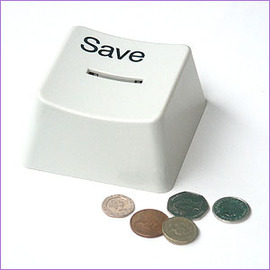Introduction

With the high prices of fuel, it is inevitable that we find ways to save on energy costs. During wintertime, we are plagued by heating costs and in summertime, cooling a home as efficiently as possible is a major concern. The Department of Energy estimates that cooling and heating a home account for 56% of total energy use in the US.
History

Decades ago, heating and cooling systems in a home did not exist. Fireplaces were used to heat homes during winter and in summer, people just tolerate the heat or cool themselves off by swimming in rivers and staying indoors. Nowadays, cooling home systems are used to maintain comfortable temperatures inside a house. But, these devices also use energy and cost a lot of money. Therefore, finding ways to cut down on energy consumption of homes is a challenge for most homeowners.
Features

Most American homes have centralized heating systems that double as air-conditioners. When cooling your home, make sure that air-conditioners are serviced regularly and maintained. Cleaning filters help the machines run efficiently saving power. In addition, the quality of air that you get improves if you clean filters because they trap dust and all airborne particles.
Installing awnings help in cooling a home. Get retractable ones that you can take out when there is too much sunshine filtering in a room. In wintertime, you can take tuck them in to benefit from the sun’s heat on sunny days.
If you have shutters, roll them down when the sun is shining such as in rooms facing the south where the rays are the strongest. To help in cooling a home, close windows during the day when temperatures are soaring. Usually, the interior of the house is still cool after winter and you have to keep the cold in as much as possible by closing windows. Open them in the night or at sunset to ventilate the rooms in a house.
A comfortable room temperature is from 72F to 78F. A slight breeze from overhead fans can help in cooling a room and warm bodies. Don’t rely on air-conditioners all the time in cooling a home. If you can use fans, switch them on. Sometimes, it is a matter of getting used to a bit of heat.
Have you ever noticed that using the dryer in winter days helps in warming a room? If you can avoid using heat producing machines such as dryers, dishwashers, and ovens, you can help in cooling a home without making your air-conditioners work harder. Remember that the warmer a room gets, the harder the air-con’s compressor works to get it to the desired thermostat setting. Thus, you can put off your chores in the evening when temperatures are lower. Cooking in batches can also help in operating stoves less often on warm days.
Switching off air-conditioners whenever you are not around can make a huge difference in your energy bills. Keep doors closed to ensure that cooling a room in a home still goes on even when the unit is switched off. As an alternative, use the timer function when cooling a home at night while sleeping. This saves energy because it only delivers air-conditioning at pre-set intervals.
Air-conditioners are not the only devices that can cool a room. You can try portable devices such as desert coolers that use water to produce cold air in a room. They can help in cooling rooms in a home, but are not as efficient as air-conditioners. However, you can use them in particular rooms and if there are not a lot of people at your house.
Tips and comments
The USDE and researchers at Lawrence Berkeley National Laboratory are also working on ‘smart windows’, glass windows that control the amount of light in heating a home. These windows help in cooling a home since they can keep unwanted light out. According to the Department, using 'smart windows' can generate potential savings of $10 billion each year on energy expenses.